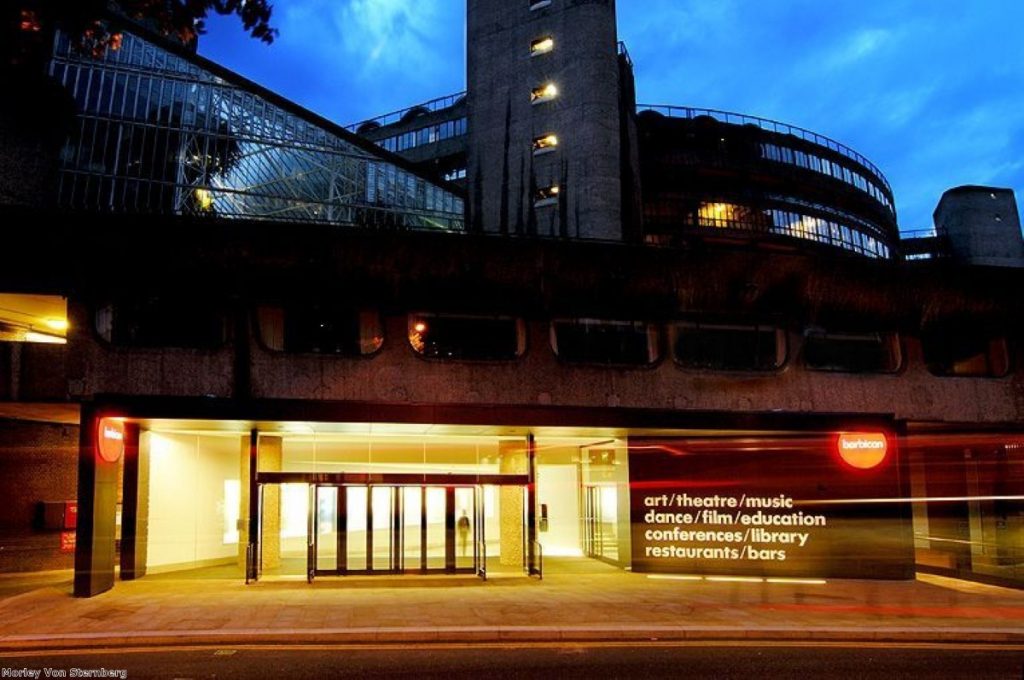Thin-skinned anti-racist protestors shut down an anti-racist exhibit
The closing down of the Barbican's Exhibit B event marks a significant moment in the rise of censorship in Britain. We have now become so sensitive, so uninterested in the purpose of a work of art, that we are closing down exhibits intended to support our own politics. We are censoring ourselves.
What an extraordinary point to have reached. Self-professed anti-racist campaigners shutting down an anti-racist exhibit because it features images of racism. Two hundred of them blocked the entrance and the road leading to the building. Organisers cancelled last night's performance and then confirmed the remaining performances would be cancelled as well.
One wonders how else we are supposed to dramatise racism without featuring images of it? Should 12 Years a Slave have been banned too? It was hardly an easy watch.
The black performers in Exhibit B stand perfectly still, in chains, in a reference to the 'human zoos' of the Nineteenth Century. There are also exhibits featuring modern-day asylum seekers, with accompanying text describing them as "found objects"


This is how the actors themselves described it:
"Each audience member walks in alone into the exhibit, and each performer is exhibited in their own tableau vivant. Each performer is instructed by Brett to look into the eyes of each audience member. On arrival, at the first tableau, most people don’t even recognise that human beings are standing there. For a moment, particularly for the first few, we are objects.
"Then, our eyes meet.
"In that moment when our eyes meet, we cease to be objectified and become human. Some people literally jump back. Some break into tears; others immediately look away. Others still gaze deeper as their eyes well up.
"As they move through the exhibit, we watch them and witness anger, grief, pity, sadness, compassion. Above all, we witness a dawning of awareness. This is why we keep doing this, and would keep on doing it, if we could."
I haven't seen the exhibit. I can't, because the protestors have managed to shut it down. But even without having seen it, it is quite clear that it was an anti-racist event, conceived by someone challenging racism and performed by those who shared his vision. It was trying to draw links between the injustices of the past, which we understand to be so, and those of the present, which are still subject to debate. The Guardian, that bastion of racism, called it "unbearable and essential".
It is perfectly obvious the Barbican would never put on a racist event. It would be almost impossible to smuggle a racist piece of theatre, TV or visual art into modern Britain. So the ultra-sensitivity which has overcome our political debate feeds not on racism, but on the use of shock in art. The same applies in journalism. Demands for 'trigger warnings' are fired off angrily every time something even remotely emotive is published online.
For whole sections of the left and right, offence is something to be wallowed in, to be savoured. It is as if they are dedicated to seeking out and exploiting opportunities for it.
And yet, there is precious little support for actually tackling the brutality of Britain's immigration and asylum system. Earlier this month Rubel Ahmed died in a British immigration detention centre. Authorities say he took his own life. Fellow residents say he was crying out in pain and no-one came to help. Either way, he was a victim of an immigration system which locks up the most vulnerable people in our society without them having committed a crime. And yet when protests are organised against it, the numbers are far fewer than the 22,000 who signed a petition attacking the Barbican for Exhibit B.
The modern censorship movement dresses itself up in compassionate clothing, but it is fundamentally selfish. It does not care about the world. It cares only about its own feelings.
The protestors who shut down Exhibit B should be ashamed of themselves. They act against their own principles, while doing nothing to help those who might actually need them.









